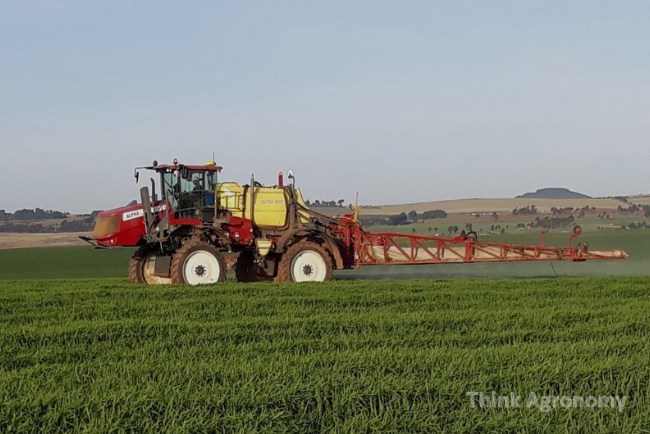
We often focus extensively on grassweed control in cereals, but on many farms – particularly where cereals have been grown year on year – many broadleaved weeds are becoming challenging and robbing us of yield and quality. Thankfully there are many options available so rotating chemistry, if not rotating crops, can be part of the […]
Read More
Healthy soils are the foundation of a resilient, high-yielding, and sustainable farming system. But did you know that soil health also plays a critical role in crop protection? A thriving soil ecosystem not only supports plant growth but also creates natural defences against pests and diseases—significantly reducing the need for chemical inputs. Here’s why soil […]
Read More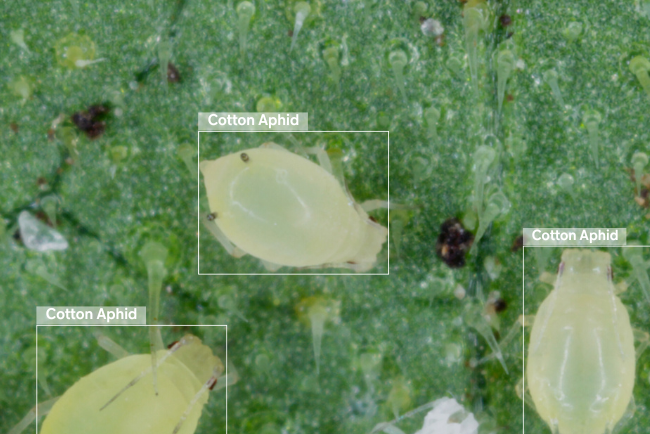
Integrated Pest Management (IPM) is a holistic approach to crop protection that combines various strategies to control pests while minimising environmental impact and economic costs. IPM uses a combination of biological, cultural, mechanical, and chemical methods, emphasising prevention and monitoring to manage pest populations sustainably. Here’s how IPM works: 1️⃣ Ecosystem-Based Approach IPM starts with […]
Read More
We have no excuses. East Africa has produced world-record crops of barley in recent years and coming out of a wet season with a full profile of soil moisture, into a dry and bright finish in January and February, the potential this year is enormous on farms that have taken the long view and found […]
Read More
Pest and disease diagnosis are crucial in identifying crop threats or pathogens early. This proactive approach to crop protection allows farmers and agronomists to make informed, data-driven decisions that optimise pest and disease management, minimise chemical use, and promote sustainable farming. Here’s a breakdown of the pest and disease diagnostics process: 1️⃣ Visual Inspection Pest […]
Read More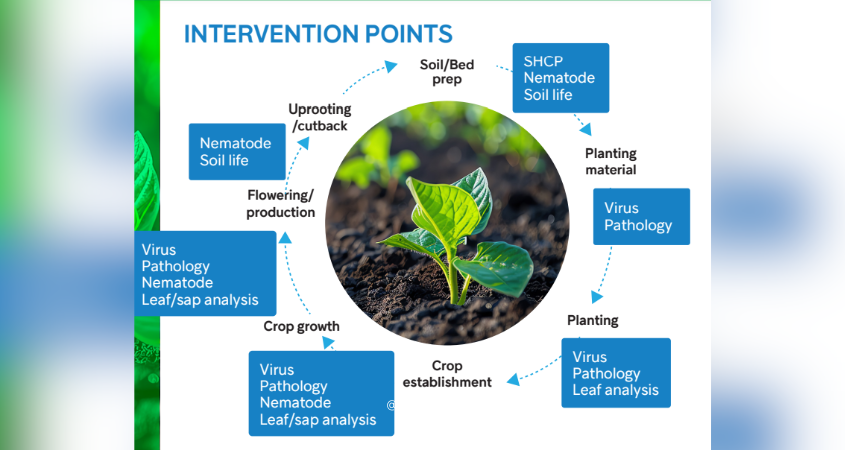
Integrated Crop Management (ICM) offers a comprehensive framework that enables farmers and agronomists to redesign their crop protection strategies sustainably. With ICM, farmers can meet the new market demands of reducing the overall use and risk of chemical pesticides—without sacrificing crop productivity. Here’s how ICM transforms crop protection in line with today’s market challenges: 1️⃣ […]
Read More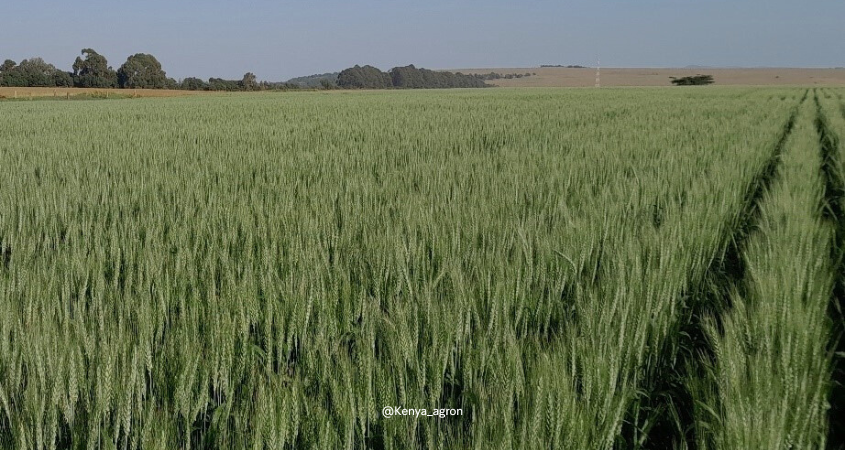
Think Agronomy Newsletter – July 2024 Having recently completed an exercise comparing wheat production costs and gross margins on clients’ farms, it is clear that there are a lot of improvements we can make by learning from each other. Variable costs alone have risen by around 65% in the past five years so it is […]
Read More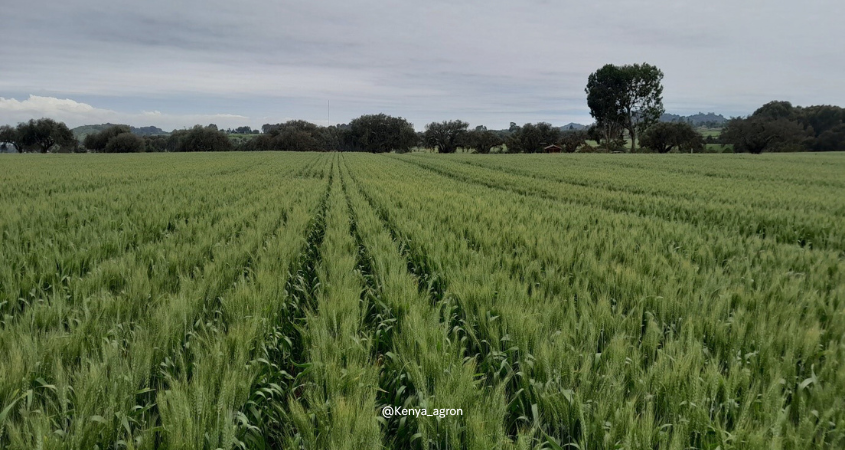
Think Agronomy Newsletter – June 2024 Growing a big crop that looks really promising… in a season with good rainfall… until those tell-tale white bleached ears appear when you are on the home straight. There is nothing more soul-destroying than seeing a great crop become heavily infected with Fusarium. Yield alone will be damaged, but […]
Read More
Think Agronomy Newsletter – May 2024 With good rain around there is a lot of potential in maize crops, so pushing them to reach their potential makes a lot of sense. Topdressing is one of those inputs that can really make a big difference to yields, with the addition of nitrogen raising yields by another […]
Read More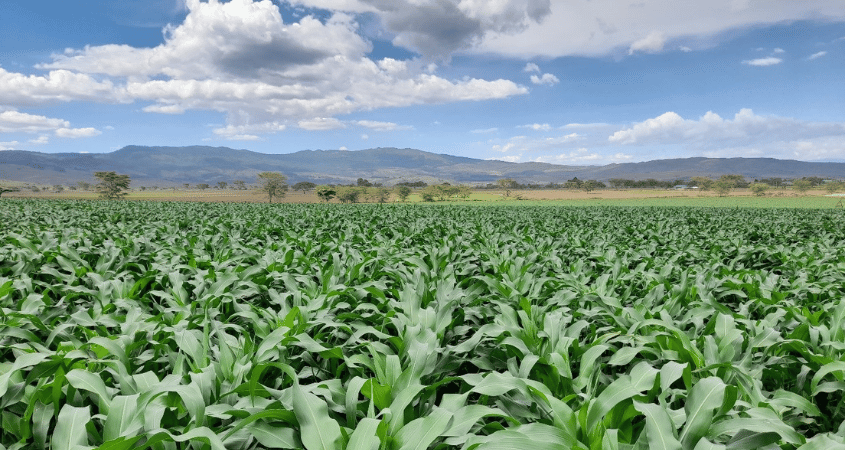
Think Agronomy Newsletter – April 2024 Since its arrival in 2017, Fall Armyworm has for some been a recurring challenge. For others, much less of a problem. I have been slightly surprised this season by the higher levels of damage early on in crops than I have seen in recent years, but these are not […]
Read More
Healthy soils are the bedrock of a thriving farming operation, and their impact on profitability is profound. Embracing improved fertilizer use efficiency and nurturing soil health can yield a multitude of benefits, translating into financial gains for growers. How Do I Profit? 1️⃣ Cost Savings on Fertilizers By cultivating well-balanced, biologically active soils, you can […]
Read More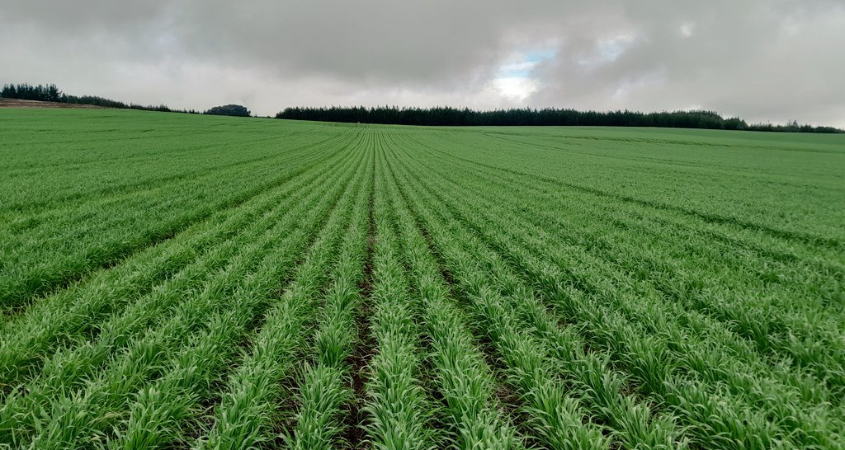
You have chosen your favourite variety, prepared the soil and are ready to plant. Hopefully you have examined the soil structure and taken action to remedy any compaction or structural issues, now you just need to load the planter with seed…. and fertiliser. One of the most important things you can do is take a […]
Read More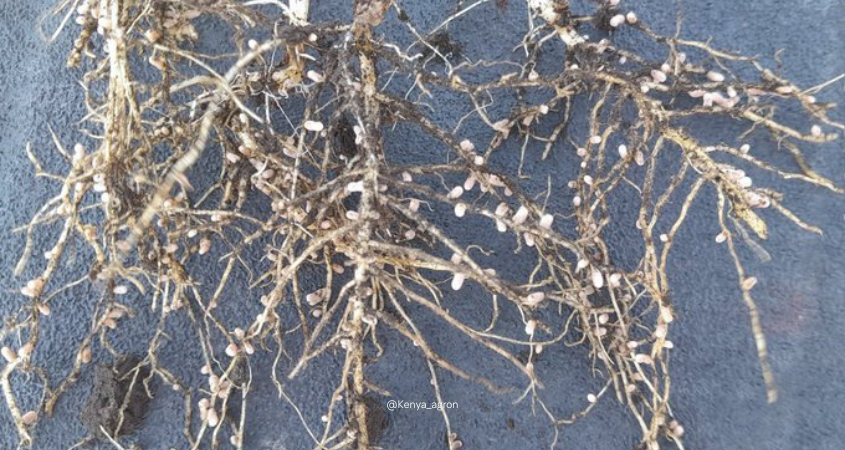
Microbes in the soil form a dynamic community that plays a crucial role in supporting plant growth and maintaining overall soil health. Among these microbes, nitrogen-fixing bacteria and mycorrhizal fungi stand out for their unique contributions. 1️⃣ Nitrogen-Fixing Bacteria Nitrogen is an essential nutrient for plant growth, and a significant portion of the Earth’s atmosphere […]
Read More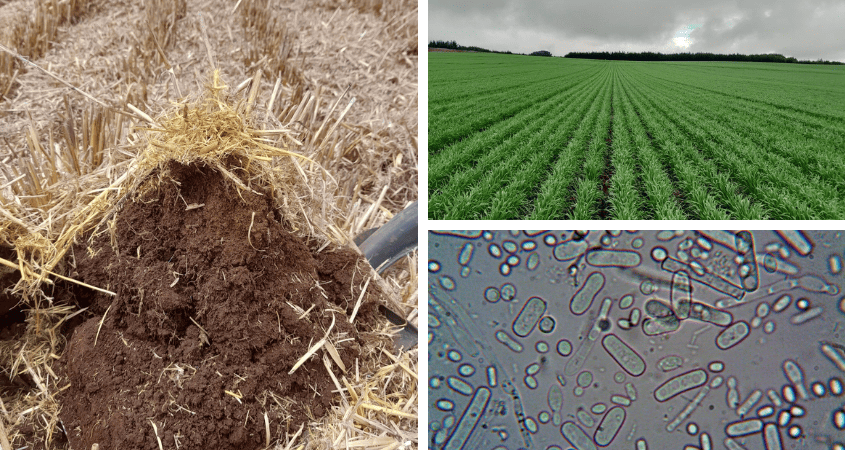
Beneficial soil microorganisms can suppress soil-borne plant diseases through various mechanisms: Antagonism: Some soil microbes act as natural antagonists to plant pathogens. They produce antimicrobial compounds that inhibit the growth and activity of harmful microorganisms. This biocontrol mechanism reduces the incidence and severity of diseases. Competition for Resources: Beneficial microbes compete with pathogens for space […]
Read More
Maize silage is possibly the number one choice for high-yielding dairy cows, with high energy content and high intakes. But what makes a good forage maize variety? After six trials we have found large and consistent differences in yield and feed quality between various hybrids, which should help farmers choose more suitable varieties for high-performing […]
Read More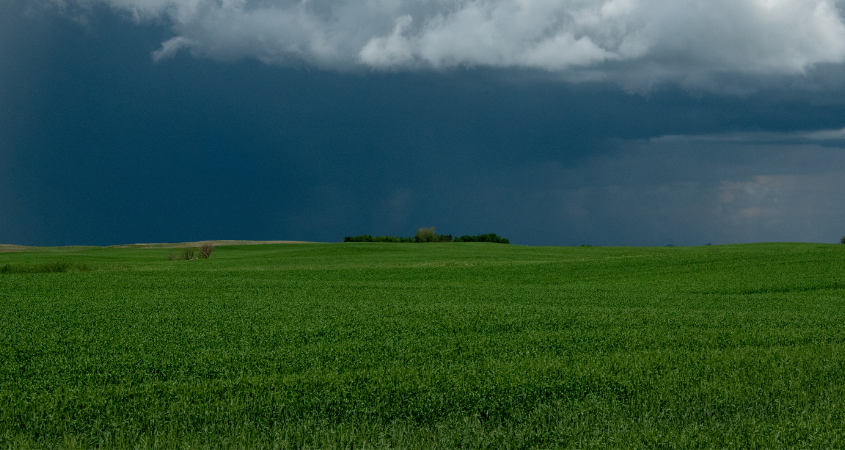
As speculation over an impending El Niño continues to build, growers are advised to plan ahead to ensure that they are not caught out at planting and are in a position to make the most of what could be a high-potential season. Several farmers familiar with the 1997/98 El Niño have told me “Be careful […]
Read More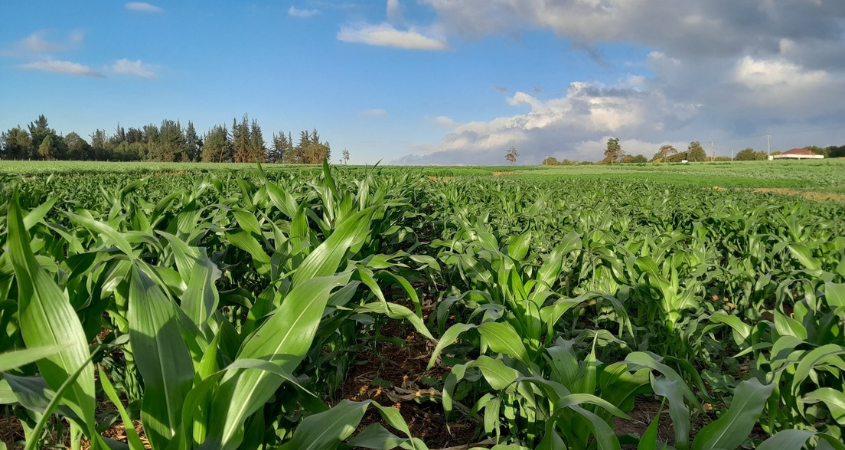
Every time I attend a talk, watch a video, or read an article on crop nutrition, the moment I hear the words “Nutrient X is important for [pollen formation / photosynthesis / insert any other process in the plant]”, I switch off. Whilst it is entirely true that different nutrients perform very different functions within […]
Read More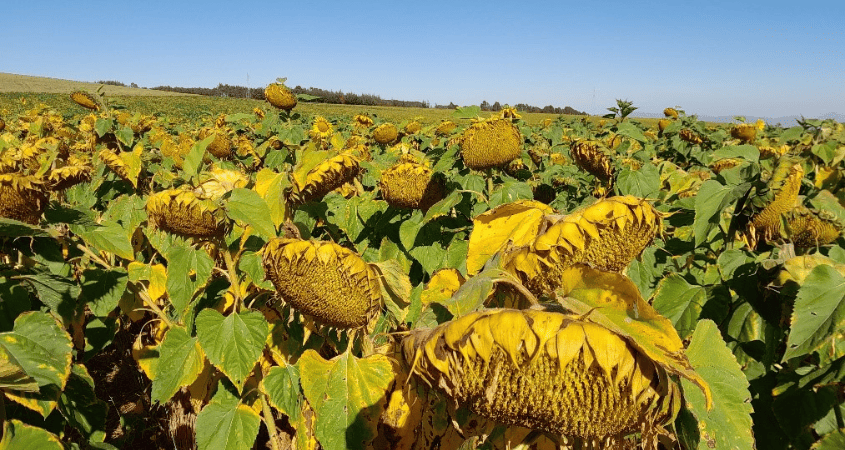
Cash flow, an opportunity to make a bit of profit, improve the soil, and to try out new crops in a lower-risk situation. It may seem a long way off, but these are the reasons why some of the very progressive farmers I work with use off-season crops after maize or wheat. For most farmers […]
Read More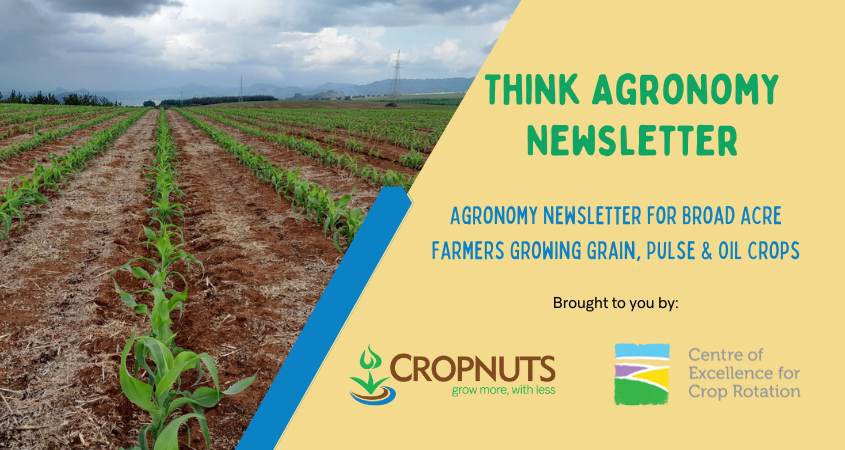
For five years we have tested maize plant populations, and every year we find that the existing advice to plant at 45-50,000 plants/ha does not produce the highest yields or the highest margin – or the best weed control. It is very clear that maize plant populations across the country need a fundamental re-think, and […]
Read More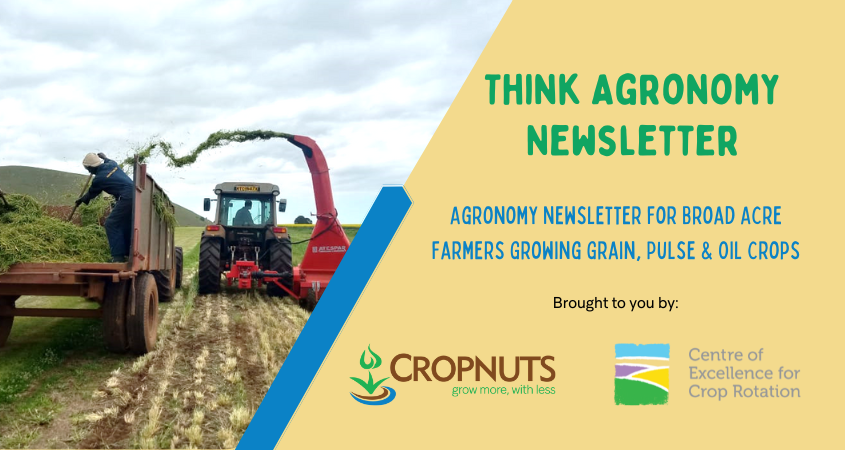
Maize silage Easy to establish and reliable, maize produces a very palatable and high-energy silage provided that it is well chopped and ensiled properly. Typically over 11 Mj of metabolisable energy per kilo, it is a great way of storing crop to feed for livestock later. The main drawbacks are that it needs to be […]
Read More
As we approach the potato planting season, good planning is essential to achieve the best from the crop and maximise your profits. We take a look at the steps to consider: Number 1 is certified seed; you do not need the crop to be held back by diseases such as Blackleg, Black Dot, and Rhizoctonia […]
Read More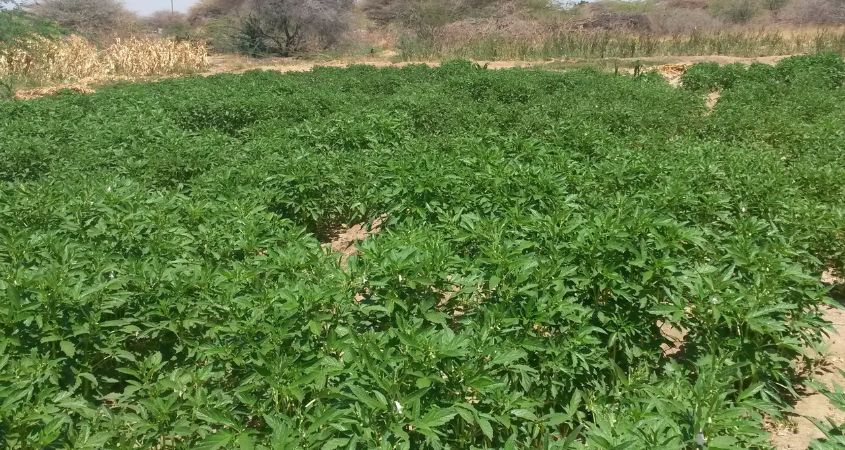
In my last article, we dealt with the many benefits of cover crops and how they can really help improve soil health, soil structure, nutrient availability (especially phosphorous), and water infiltration and moisture holding capacity. These are some of the most important yield destroyers in African soils. Cover cropping, if done properly can really make […]
Read More
Bushel weight can make the difference between a profitable crop and one that you can’t even sell. Carrying on from our previous newsletter on how to improve your bushel weight, we take a look at how to get the fungicide program right to maximise your chances of getting a top price for your wheat. Fungicide […]
Read More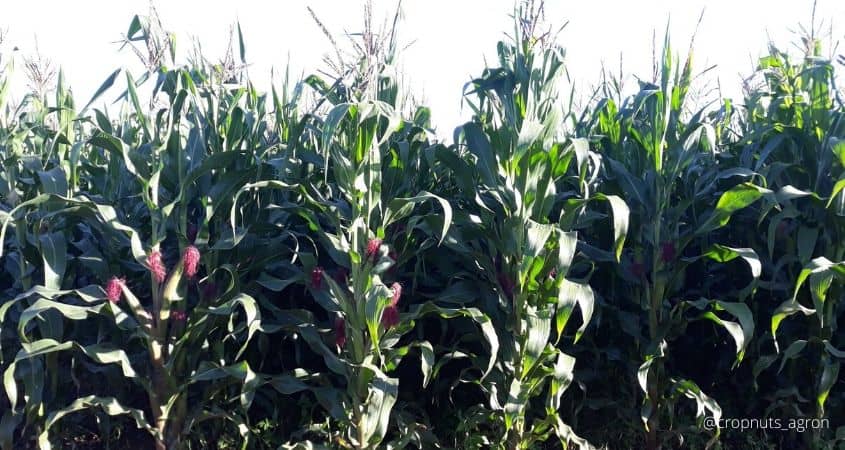
Maize plant population and seed rate comparison data from our maize variety trial sites has been very enlightening. Last week we looked at the results of our Cropnuts Maize Variety Trials in 2019 and highlighted how some maize varieties perform very differently at higher plant populations. Within the Variety Trials last year at every site, […]
Read More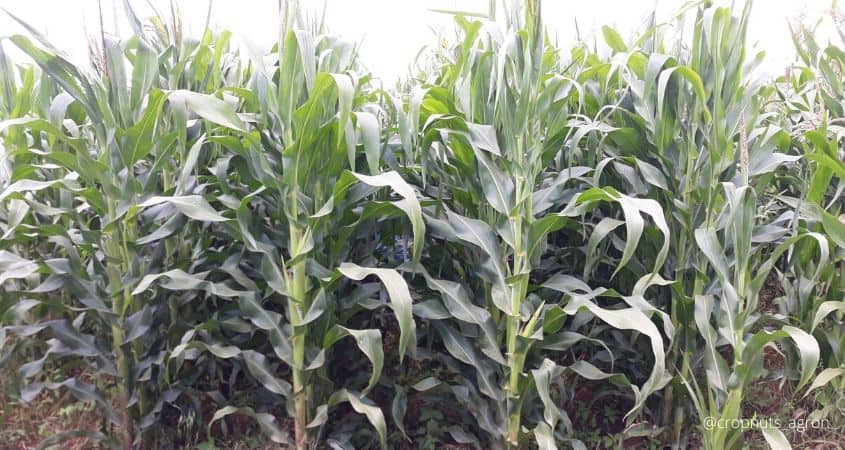
Choosing the right variety is important for any crop, but with a crop like maize where there is just so much choice, where do you start? Last season we carried out four fully replicated maize variety trials in the highland areas; in Timau, Rumuruti, Nakuru and Eldoret to independently compare a range of maize varieties […]
Read More
Plant nutrition is the study of the chemical elements and compounds necessary for plant growth, plant metabolism and their external supply. Without proper plant nutrition, plants tend to die off or produce little or no yield. In my line of work I visit hundreds of flower farms a year; the flourishing, the ticking over, and the ones in […]
Read More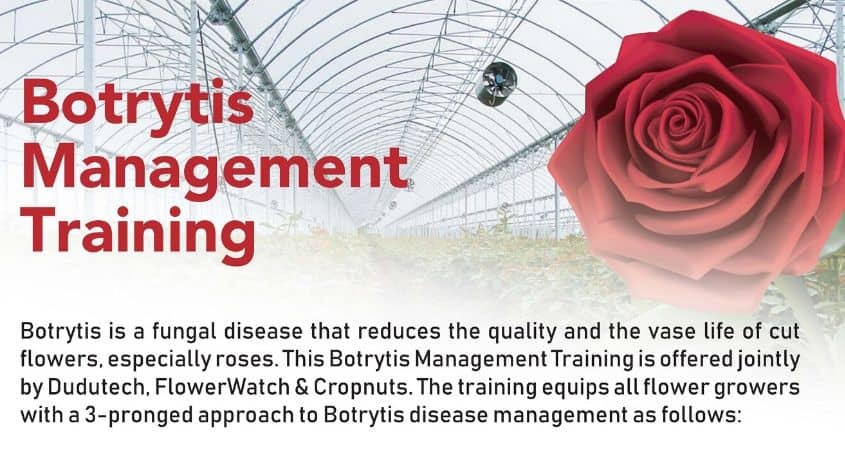
CROPNUTS, Flowerwatch and Dudutech have come together to organize a training on Botrytis Management. The three companies create a good balance to tackle the challenge of Botrytis completely, offering crop nutrition, crop protection and post-harvest disease management strategies. We are keen to address and train farms on how to manage Botrytis. We will have 4 training […]
Read More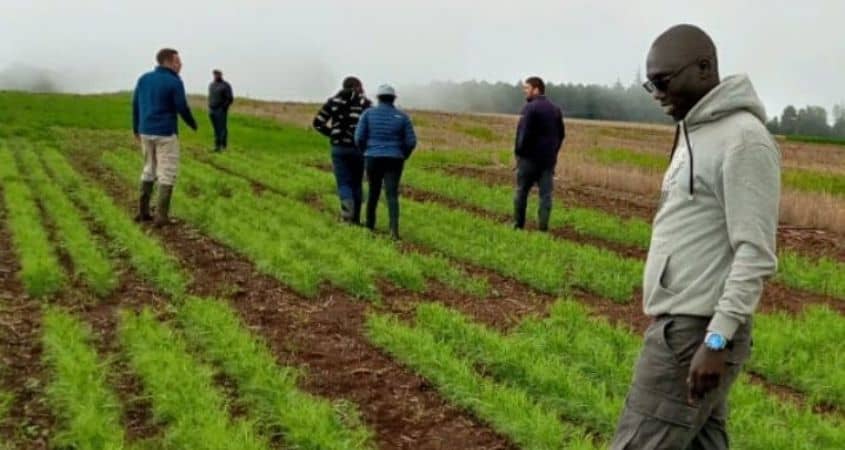
Importance of Molybdenum & Cobalt On Legumes Looking back through some of our legume crop field trials which have focused mainly on peas, the use of molybdenum and cobalt on the seed has consistently shown improvements in nodulation and yield. We know how important molybdenum is on legumes and brassicas in most Kenyan soils so […]
Read More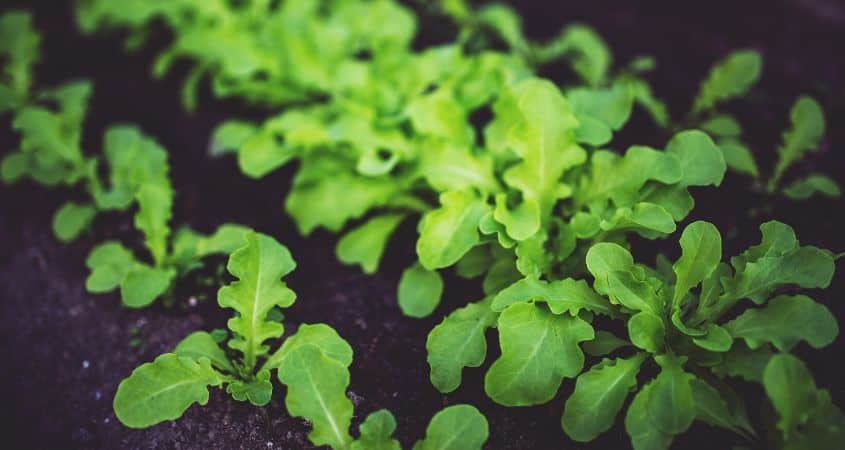
Calcium Nitrate is an inorganic compound with the formula Ca(NO3)2 and is mainly used as a component in fertilizers. In soil and plant nutrition Calcium is King. Calcium Nitrate is the only cheapish non-reactive water soluble calcium fertilizer suitable for drip feeding fertigated crops, so it goes without saying that calcium nitrate is the sovereign of fertilizers. There are […]
Read More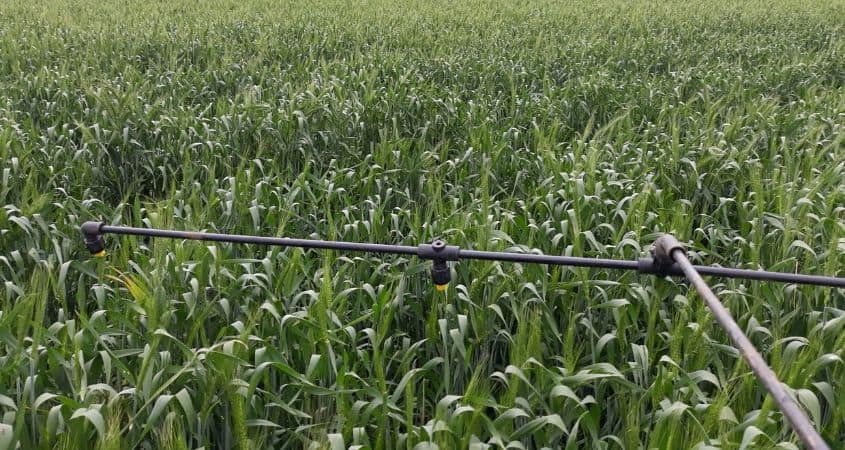
Fungicides are biocidal chemical compounds used to kill parasitic fungi or their spores. Fungi can cause serious damage in agriculture, resulting in critical losses of yield, quality, and profit. Fungicide Classification Fungicides are mostly known by their brand names. But when you want to get scientific about farming, it’s important to understand a bit more about which ones to use in different crops, and […]
Read More
Think Agronomy is our new, regular broadcast keeping arable farmers updated with tips, tricks and knowledge from our experienced team of independent agronomists. To subscribe to receive our Agronomy newsletters straight to your email inbox, please click here Farmers of every crop type including livestock are being urgent to make plans to deal with the potential locust plague […]
Read More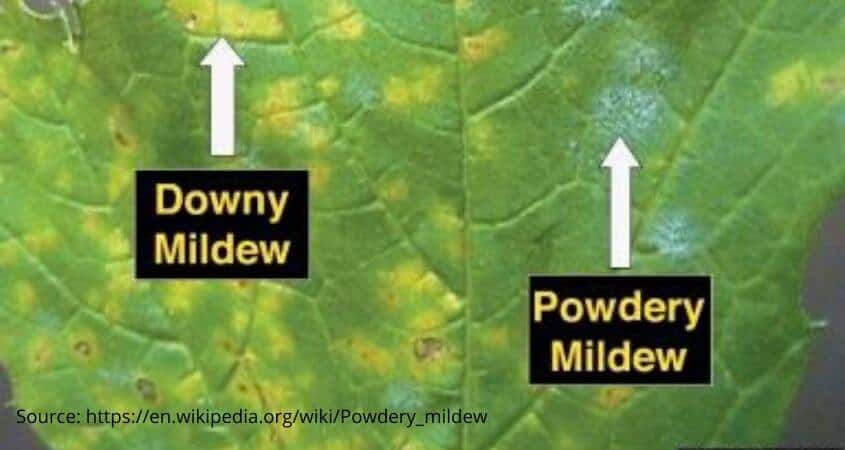
“What’s the difference between powdery mildew and downey mildew and what is used to treat them?” “What is this white powdery substance infesting my tomatoes? Pls help” are questions frequently asked by most first-time greenhouse farmers. Let’s figure out this puzzle together.. Powdery Mildew Powdery mildew is a fungal disease that causes destruction of leaves, […]
Read More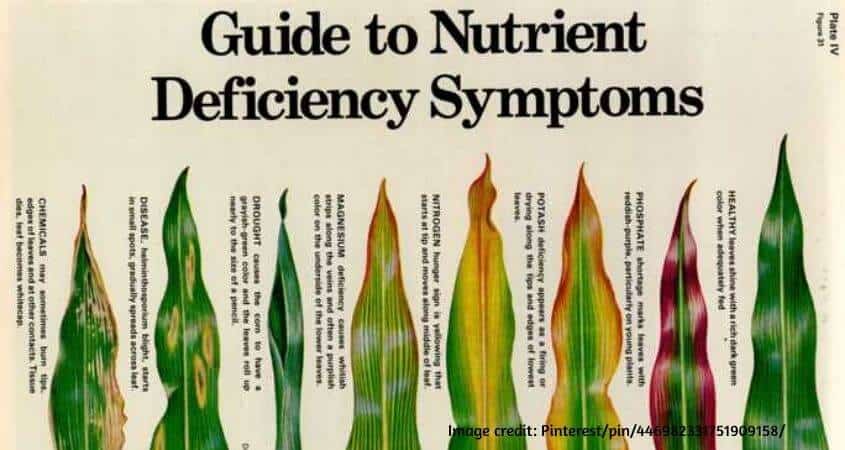
Nutrient deficiency disease symptoms in plants is a common puzzle among crop farmers. In order to determine which nutrients are deficient in your soil and understand your soil better, consider doing a soil analysis for your crops. What follows is a description of visual symptoms of deficiency diseases in plants due to lack of nutrients. […]
Read More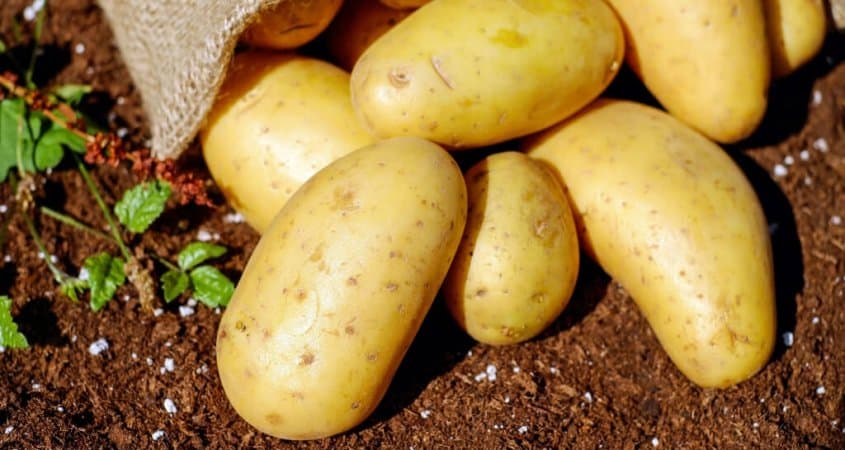
Is potato farming profitable? What are the potato fertilizer nutrient recommendations? What potato diseases and pests are likely to affect my crop? Are there potato virus diseases and what are their control methods? Ruth Vaughan, delves into all your questions.. Irish potato farming in Kenya & Africa at large is gaining ground as demand for […]
Read More